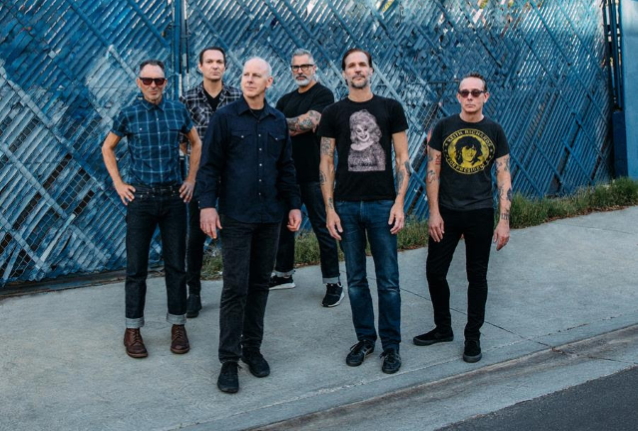
BAD RELIGION's GREG GRAFFIN: 'There's Something Hopeful And Uplifting About Our Music'
September 27, 2020Greg Graffin of BAD RELIGION spoke to "The Five Count" radio show about what keeps him inspired to make new music four decades into the veteran punk band's career.
"That's the thing that's unique about BAD RELIGION, is our long catalog, our extensive catalog of songs and albums," he said (hear audio below). "Even though a lot of bands are 40 years old, most of them are playing songs or hits from 30 years ago, because they don't put out new music.
"When BAD RELIGION decides to put out new music, it's not just because the world is in turmoil; I don't think that's very inspiring as a songwriter," he explained.
"We write music that we hope speaks to some kind of a sentiment of optimism, even though our music is rather pessimistic. [Laughs]"
He added: "It's funny, 'cause a lot of fans say, 'Your music is about such serious stuff. A lot of it is tragic stuff about the human condition. But it always makes me feel so good.' [Laughs] And these are not dark people — they're not negative, nihilistic people.
"There's something hopeful and uplifting about our music, and that's something that I do feel a great sense of artistic satisfaction about."
Earlier this month, BAD RELIGION released a demo version of "Lose Your Head", a fan favorite from the band's critically acclaimed 2019 album "Age Of Unreason".
Co-songwriters Brett Gurewitz and Graffin developed this version of the song at Gurewitz's home studio in Pasadena, California. When producer Carlos de la Garza was brought on board, he suggested trying a slower version. The band liked both versions equally so, when they entered Sunset Sound to record "Age Of Unreason", they decided to work on basic tracks for both and choose later. It was a close call but ultimately the band chose the slow version which is the one they completed.
Last month, BAD RELIGION released its autobiography, "Do What You Want: The Story Of Bad Religion", written with the group's full cooperation and support. It reveals the ups and downs of the band's 40-year career, from their beginnings as teenagers experimenting in a San Fernando Valley garage dubbed "The Hell Hole" to headlining major music festivals around the world. The book predominantly features the four principal voices of BAD RELIGION in a hybrid oral history/narrative format: Graffin, Gurewitz, Jay Bentley and Brian Baker. It also includes rare photos and never-before-seen material from their archives.

Comments Disclaimer And Information